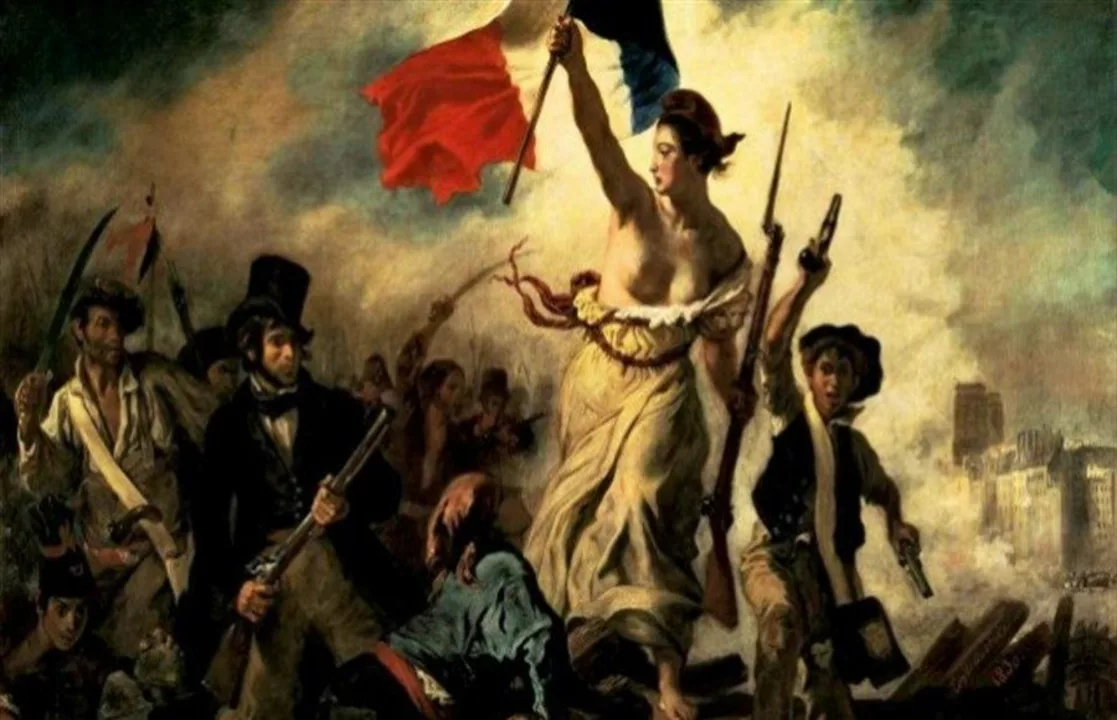
The Storming of the Bastille: A Key Moment in the French Revolution
One of the most significant events that occurred during the French Revolution was the storming of the Bastille. On July 14, 1789, a crowd of Parisians marched to the Bastille, a prison and symbol of the oppressive French monarchy. This event marked the beginning of the Revolution, and it signaled a shift in power from the monarchy to the people.
The storming of the Bastille was a key moment in the French Revolution for several reasons. First, it demonstrated the power of the people, and it showed the monarchy that the people were willing to take action against their oppressive government. The event also served as a rallying cry for revolutionaries across France, inspiring them to join forces and fight for their freedom.
In addition to its symbolic significance, the storming of the Bastille was also important because it enabled the revolutionaries to gain access to weapons and ammunition. By taking control of the prison, the revolutionaries were able to arm themselves and prepare for the battles that lay ahead. This was a crucial step in their quest for freedom.
The storming of the Bastille was an iconic event in the French Revolution, and it marked a turning point in the struggle for freedom. It showed the people of France that they had the power to take action and fight for their rights, and it gave the revolutionaries the courage and the means to continue their fight. To this day, July 14 is celebrated as a national holiday in France, and the Bastille remains a powerful symbol of the French people's fight for freedom.
The Reign of Terror: A Dark Period in French Revolutionary History
The French Revolution was a tumultuous period of upheaval and change in France, beginning in 1789 and lasting until 1799. It marked the end of centuries of monarchy, and the establishment of a Republic. The Revolution was divided into a number of phases, including the Reign of Terror, a period of violence and mass executions that lasted from 1793 to 1794.
The Reign of Terror was a dark period in the history of the French Revolution, and one of the darkest moments in French history. It began after the overthrow of Louis XVI, when the radical Jacobins seized control of the government and instituted a new dictatorship. Under the leadership of Maximilien Robespierre, the Jacobins implemented a bloody campaign of terror and repression, executing thousands of political opponents and suspected enemies of the revolution. The Reign of Terror was a ruthless and ruthless effort to silence opposition and consolidate power.
The Jacobins pursued their campaign of terror through a variety of methods, including public executions, mass arrests and imprisonments, and the use of revolutionary tribunals. Thousands of people were tried and sentenced to death without a fair trial, and the guillotine became a symbol of the Revolution. The Reign of Terror was an attempt to impose a new form of government on the people of France, but it ultimately failed, and the Jacobins were overthrown in 1794.
The Reign of Terror was a dark period in French Revolutionary history, and it was a time of great suffering and tragedy. Despite this, the French Revolution ultimately succeeded in overthrowing the monarchy and establishing a new republic. Although the Reign of Terror was a terrible time, it had some positive effects, such as introducing civil rights and liberties that are still in place today.
The Abolition of the Monarchy: The End of an Era in France
The French Revolution was a period of great upheaval in France, marked by the end of the monarchy and the establishment of a republic. One of the most important events of the Revolution was the Abolition of the Monarchy, which marked the end of an era in French history.
The Abolition of the Monarchy was the result of a long and tumultuous struggle between the French people and their royal rulers. For many years, the people had been suffering under the oppressive rule of the kings and queens of France. They had been denied basic rights and liberties, and the people had grown increasingly frustrated with the monarchy's lack of reform.
The Revolution began in 1789, when a large group of protesters gathered in Paris to demand reform from the monarchy. This event, known as the Storming of the Bastille, marked the beginning of the Revolution. In the months that followed, the revolutionaries began to gain more and more support, and the monarchy's power began to diminish.
On August 10, 1792, the National Convention declared the abolition of the monarchy. This was a major victory for the revolutionaries, and it marked the end of the monarchy's reign in France. The Abolition of the Monarchy was an important step towards establishing a new, more democratic form of government in France.
The Abolition of the Monarchy was a significant event in the history of France. It marked the end of an era and the beginning of a new era of freedom and democracy. The Abolition of the Monarchy was an important step towards establishing a more equal and just society in France.
The Declaration of the Rights of Man and of the Citizen: A Revolutionary Document
The French Revolution had a profound impact on the world, both in the short and long term. One of its most significant accomplishments was the Declaration of the Rights of Man and of the Citizen, a revolutionary document that declared the rights of all French citizens and became a foundation for modern democracies around the world.
The Declaration of the Rights of Man and of the Citizen was created by the National Assembly of France in 1789 and adopted on August 26th of that year. This document was a response to the oppressive reign of the French monarchy and the struggles of the French people to gain freedom from the oppressive rule. It declared that all citizens were equal under the law, and that all citizens had the right to life, liberty, and property.
The Declaration of the Rights of Man and of the Citizen influenced the world in many ways, from inspiring other countries to create their own declarations of rights to influencing the American Revolution and the creation of the US Constitution. Many of the rights outlined in the Declaration of the Rights of Man and of the Citizen became integral parts of modern democracies, such as the right to freedom of speech, the right to privacy, and the right to due process.
The Declaration of the Rights of Man and of the Citizen was a major milestone in the French Revolution, and its legacy still resonates today. Its principles of equality and freedom have inspired countless other countries and documents, and it stands as a testament to the power of the people to fight for their rights and achieve freedom from oppressive rulers.
The Battle of Valmy: The Turning Point in the French Revolution
The Battle of Valmy was a pivotal event in the French Revolution. It marked a major turning point for the revolution, and is seen as a major victory for the revolutionaries. The battle took place on September 20th, 1792, in the Valmy forest, near the village of Valmy in northeastern France. The forces of the First French Republic, led by General Charles François Dumouriez, faced off against the forces of the Prussian Empire, led by Duke Frederick William of Brunswick.
The Battle of Valmy was a turning point for the French Revolution, as it was the first major victory for the revolutionary forces. It was also a significant victory in terms of morale and public opinion, as it demonstrated the strength of the revolutionaries and their commitment to the cause. This victory had a major impact on the course of the French Revolution, and was a major factor in the eventual overthrow of the monarchy and the establishment of the First French Republic.
The victory at Valmy was seen as a major political victory for the revolutionaries. It was a demonstration of their strength and their commitment to the cause of liberty, and it gave the revolutionaries newfound confidence. The victory was also seen as a major diplomatic victory, as it demonstrated the strength of the revolutionaries and their ability to stand up to foreign powers. This victory also had a major impact on the international diplomatic scene, as it demonstrated that the French were a force to be reckoned with in Europe.
The Battle of Valmy was a major event in the French Revolution, and it marked a major turning point. It was a major victory for the revolutionaries, and it had a major impact on the course of the revolution. It was a major political and diplomatic victory, and it demonstrated the strength of the revolutionaries and their commitment to the cause of liberty. This victory was a major factor in the eventual overthrow of the monarchy and the establishment of the First French Republic.


